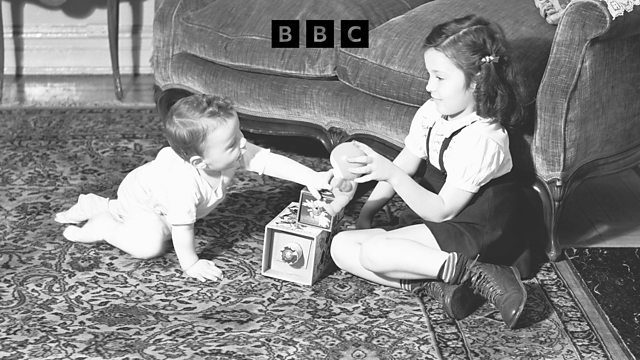
News
Tavistock child psychotherapist Margaret Rustin featured on BBC Radio 4
Margaret Rustin, child psychotherapist at the Tavistock and Portman, was featured on the BBC Radio 4 show Archive on 4.

The episode, hosted by Professor Tanya Byron, explores the lives of two remarkable women, Anna Freud and Melanie Klein, asking how they came to transform our understanding of children’s inner worlds.
Margaret who co-wrote the book ‘Reading Klein’ with Michael Rustin, an introduction to the work of Melanie Klein, contributed to the episode and explored Melanie’s early contribution and development in the area of child psychotherapy.
In the episode, Margaret spoke about Melanie Klein and her techniques;
“Her first exploration of [child psychoanalysis] was trying to understand her own children, watching them and the way they played, sometimes they would tell her their dreams, thinking about them. You could say protoanaylsis of her own children, which of course nowadays would not happen.
The episode explored how Melanie Klein would invite children to play with toys and letting them take the lead;
“Klein felt that in offering a non-led form of play that she was reaching the same parts of the mind that Freud thought that free association reached – that is to say, the parts of the mind that are not being consciously controlled.
In the early 20th century play wasn’t thought of in this way, and Margaret discusses how children playing with their toys , particularly in therapy sessions, can show how they are feeling.
“[Melanie Klein] felt that what she discovered was that children don’t only love their parents, they also hated them. And we needed to take account of negative feelings as well as positive feelings.
Melanie Klein’s play technique opened a window into children’s feelings that was completely unexpected from children at the time – such as feelings of anger, rage, distrust and anxiety in children as young as two years old.
“She believed in the forces of love as well as the forces of hate. And in children’s play you see both of those. You see little dolls or animals looked after very tenderly as well as assaulted. The whole range.”
Melanie Klein’s theories were at the time groundbreaking; she was the first person who articulated how children can be caught between the pull of love, and the push of hate. This realisation laid the foundation of how everyone after her saw how parents and children relate to each other from birth.
The episode also delves into how Melanie Klein’s work affected her personal life, her working relationship with Anna Freud, and how they both built the entire field of child psychoanalysis.
Listen to the episode on BBC Sounds
Watch Me Play!
Promoting child-led play continues to be an important part of a child’s development. Our very own Watch Me Play! approach is a free resource which promotes child-led play, individual attention from caregivers, and talking with babies and children about their play. This helps to enhance relationships, and create a better understanding of each child’s strengths and needs.

Watch Me Play!
Watch Me Play! is a simple way for parents and caregivers to support their baby or young child. The approach can be helpful in a range of family contexts. How it works The Watch Me Play! approach promotes child-led play, individual attention from caregivers, and talking with babies and children about their play. Caregivers are…
About the episode
A century ago, the idea that children could suffer psychologically – or that their voices mattered – was barely even considered. It would take two fiercely intelligent and utterly compelling women to shift the dial.
In the early 20th century, Anna Freud and Melanie Klein emerged as prominent figures within the psychoanalytic community, each offering distinctive perspectives on children’s inner lives. Navigating grief, misogyny and a fraught personal rivalry, they built the entire field of child psychoanalysis from the ground up. And as bombs fell on a Blitzed London, their disagreements sparked a revolution that uprooted an entire professional and intellectual tradition.
Their perceived battlelines have shaped the contours of every debate in child psychology since. From parenting, to education, to therapy, and more. Professor Tanya Byron, clinical psychologist and child therapist, investigates how their shared story of creativity and contestation forever changed the way we understand and support children.
